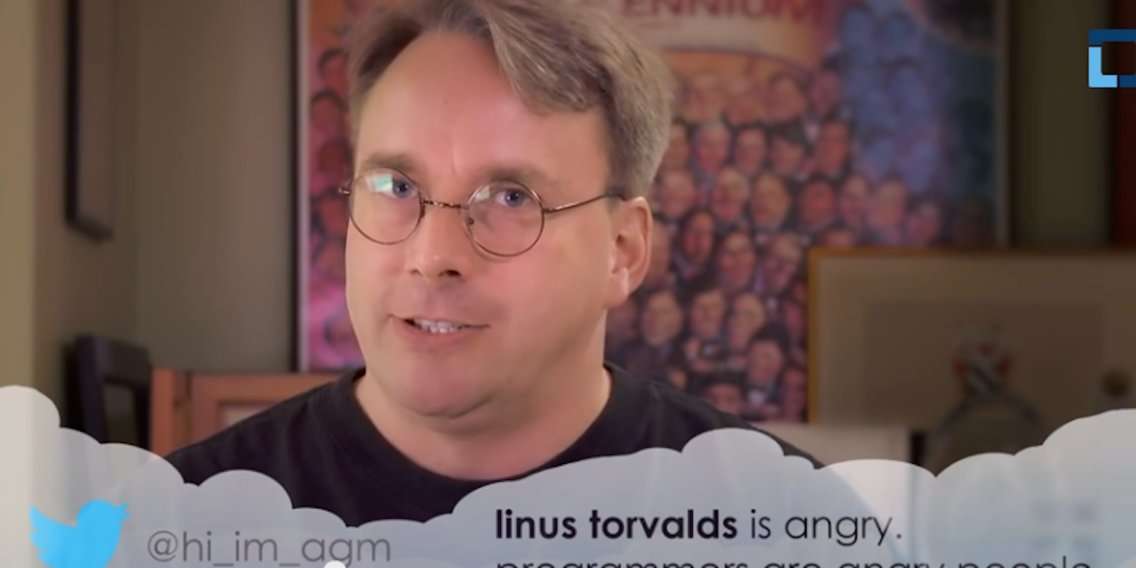Linus Torvalds, the creator of the Linux operating system that secretly runs the internet and is the basis for Android, was recently asked what he would change about the tech world that his technology helped create, if he could.
"I absolutely detest modern 'social media' — Twitter, Facebook, Instagram. It's a disease. It seems to encourage bad behavior," Torvalds told the Linux Journal's Robert Young.
This is interesting criticism from a man who has often been accused of being uncivil to other programmers on Linux email lists. Torvalds is known as a brilliant, funny, and speaks-his-mind kind of guy who is generally fair-minded but doesn't tolerate fools.
Read more: 11 enterprise rock stars that have quietly been responsible for some of the most successful cloud services in the world
That personality means he's publicly dressed down people whose work, or motivations, fell short of his standards. Years ago, he defended his behavior when a developer from the chipmaker Intel publicly called him out for it and told him to knock it off because it was not only unprofessional but was also driving away newbies and others who wanted to contribute to Linux. He shrugged off the criticism by responding, "People are different. I'm not polite, and I get upset easily but generally don't hold a grudge — I have these explosive emails."
Since then, the open-source world has started to confront how much bad behavior goes on its world with various communities and has adopted codes of conduct. In 2018, the main Linux community adopted a code of conduct, too. And along with that, Torvalds finally said his behavior needed changing. He took time off to "get some assistance on how to understand people's emotions and respond appropriately," he said.
So Torvalds calling out social media for encouraging bad behavior is ironic. To be fair, as one of the most famous programmers, he's been the target of his fair share of online abuse, too. In 2015, he made a cheesy, funny video in which he read aloud nasty tweets about himself.
'If you cannot prove your identity, your crazy rant on some social-media platform shouldn't be visible'
Torvalds told Linux Journal that the internet eliminates all the social cues that are usually part of communications, so "nobody can hear you being subtle."
"It's easy to miss humor and sarcasm, but it's also very easy to overlook the reaction of the recipient, so you get things like flame wars, etc., that might not happen as easily with face-to-face interaction," he said.
Torvalds said the same issues can crop up with email, too, but he believes email is more necessary and often communicating real information.
Not so with social media. "The whole 'liking' and 'sharing' model is just garbage. There is no effort and no quality control. In fact, it's all geared to the reverse of quality control, with lowest common denominator targets, and click-bait, and things designed to generate an emotional response, often one of moral outrage," he said.
On top of all that, when you add in anonymity, "it's just disgusting," he said.
"Some people confuse privacy and anonymity and think they go hand in hand, and that protecting privacy means that you need to protect anonymity. I think that's wrong. Anonymity is important if you're a whistle-blower, but if you cannot prove your identity, your crazy rant on some social-media platform shouldn't be visible, and you shouldn't be able to share it or like it," he said.
Consequently, Torvalds is not on any social media today although he briefly used Google+ for a while, feeling like Google's unsuccessful attempt at social media was "less mindless" than the others. (Google announced it was shutting down Google+ in December and began deleting accounts on Tuesday).
Torvalds didn't get into whether or not governments should step in and start regulating internet companies, perhaps making them more responsible for the content they promote (if not host). Still, having Torvalds give the social media world a "thumbs down" isn't a good sign for internet companies trying to convince the world that they are the good guys.

TadeoTrek on April 4th, 2019 at 02:58 UTC »
That article is garbage, I recommend people read the full interview he gave to Linux Journal, which is what this is based on. It goes into a lot more detail into where he's coming from and why he's saying what he's saying, as someone who has had a public internet image since the early 90s.
mauxfaux on April 4th, 2019 at 00:19 UTC »
Reddit should be on that list. Let’s not excuse our own cesspool.
Late Edit: Many of you keep saying that Reddit is different because it’s anonymous. That misses Linus’s point entirely, which is that social media encourages bad behavior.
In fact, I’d argue that anonymity only serves to further encourage bad behavior because—unlike Facebook—there’s literally no repercussions for saying something that you would never attach your name to in a real-life setting:
Reddit coarsens our discourse. Somebody called me an asshole for no reason below. I’m often pedantic, sarcastic, and snarky myself. We all do it. Reddit promotes conspiracies. Reddit often acts as a hive with negative, real-life impacts (Boston Marathon, anyone?). Reddit hosts toxic communities that you would run out of your neighborhood in real life. Reddit is easily manipulated and its karma system is frequently gamed to promote misinformation or market shit.Look, I’m not saying there aren’t good parts of Reddit. I’ve wasted more time here than probably a lot of you. I don’t even want to check my cakeday.
If you don’t think that Reddit is part of the social media problem, you are fooling yourself. It’s at the top of the list.
WoollyMittens on April 3rd, 2019 at 23:06 UTC »
They are merely a symptom of the disease.